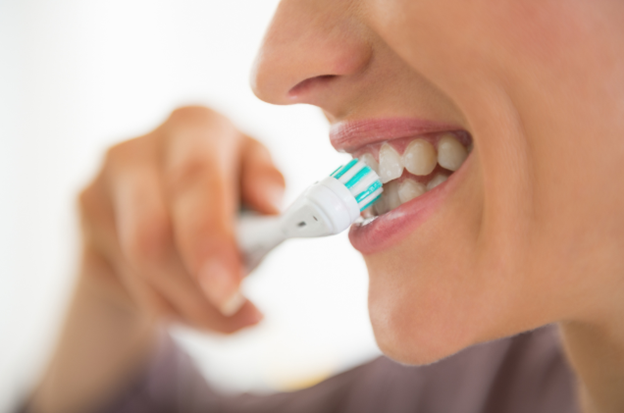If your teeth and gums are not in the best condition, it can pose a big problem. It can lead to severe pain, loss of teeth, and infection and can lower your confidence. However, improving the health of your teeth and gums can be as simple as changing some of your daily habits.
If you’ve never thought about your oral health or think your gums and teeth are delicate, this article is for you. Keep reading for some quick tips on healthy gums and teeth you can use to prevent oral health issues in the future.
1. Brush Twice a Day
Brushing your teeth twice daily is one of the most important habits you can develop to maintain healthy gums and teeth. Brushing your teeth helps to get rid of plaque and bacteria that can lead to tooth cavities, gum disease, and other dental hygiene problems.
When brushing your teeth, it is important to use fluoride toothpaste. Fluoride helps to strengthen tooth enamel and make it more resistant to decay.
Using a soft-bristled toothbrush and brushing your teeth for at least two minutes each time is recommended. Make sure to clean all surfaces of your teeth, including the fronts, rears, and chewing surfaces.
2. Floss Daily
Flossing daily is an essential part of maintaining healthy gums and teeth. It helps remove plaque and food particles between teeth and under the gum line, where toothbrush bristles cannot reach.
When flossing, it is essential to use the proper technique. Break off a piece of floss about 18 inches long and wind it around your fingers, leaving about two inches of floss between them. Use a gentle sawing motion to guide the floss between your teeth, being careful not to snap it down onto your gums.
3. Use Mouthwash
Using mouthwash can be an effective way to maintain healthy gums and teeth. Mouthwash can help kill bacteria in your mouth and freshen your breath.
When choosing a mouthwash, look for one that contains fluoride, which can help strengthen tooth enamel and make it more decay-resistant. If you have sensitive teeth or gums, look for a mouthwash designed for sensitive teeth.
While mouthwash can be beneficial, it should not be used as a substitute for brushing and flossing. Brushing and flossing are still the most important habits you can develop to maintain healthy gums and teeth.
4. Eat a Healthy Diet
Eating a balanced diet with adequate amounts of protein, carbohydrates, and nutritious snacks can promote the development of healthy teeth. Eating the right foods helps give your teeth the minerals they need to stay strong and healthy.
Eating various fruits and vegetables can provide fiber, calcium, and vitamin C to help strengthen your teeth. Eating foods high in sugar and acid, such as candy and soda, can damage your teeth by damaging the enamel and causing cavities.
5. Drink Plenty of Water
Drinking plenty of water is essential for maintaining healthy gums and teeth. Water helps flush away debris and bacteria, which can accumulate and cause tooth decay. Regularly drinking water helps prevent plaque and cavities and reduces bad breath.
In addition, it helps keep saliva production balanced. Saliva contains minerals that help neutralize the acids in our mouths, which prevents tooth erosion. Drinking water throughout the day is essential to ensure proper hydration and oral health.
6. Don’t Smoke
It is a scientific fact that smoking harms oral health and increases the risk of developing gum disease, tooth decay, and other dental and oral issues. Cigarette smoking weakens gums and teeth, leading to decay and cavities.
Smoking also increases the risk of developing oral cancer. Cigarette tar and nicotine produce yellowish stains on the teeth.
The gums and teeth can become badly discolored as well. As a result, it is essential not to smoke to ensure healthy gums and teeth.
7. Visit the Dentist Regularly
Visiting the dentist regularly is one of the most straightforward and essential steps to ensure the health of your gums and teeth. Regular dental check-ups help identify and prevent many problems before they become serious.
The American Dental Association recommends getting a professional dental cleaning and check-up at least twice a year. Additional visits are recommended for those with specific dental problems. During a regular check-up, your dentist will examine your teeth and gums, clean your teeth, and watch for signs of tooth decay or dental disease.
In addition to regular check-ups and cleanings, your dentist can provide information about Invisalign, An Invisalign provider, also known as a certified Invisalign practitioner, is a skilled dental professional specifically trained to offer tailored treatment using the Invisalign system. Invisalign, a discreet alternative to conventional braces, employs transparent, removable aligners to gently reposition teeth over time. These providers undergo rigorous training to accurately assess patients dental conditions, craft personalized treatment plans, and oversee the progression of treatment. By partnering with an experienced Invisalign provider, individuals can embark on their journey towards achieving a straighter, healthier smile with confidence and ease.
A popular alternative to traditional braces for straightening teeth. Invisalign uses a series of clear, removable aligners to straighten teeth gradually without wires or brackets.
You can learn more about invisalign and the various benefits of straight teeth here.
8. Chew Sugarless Gum
Chewing sugarless gum can be a great way to help maintain healthy gums and beautiful teeth. It can help stimulate saliva production, which helps neutralize acid and prevent tooth decay.
When choosing gum, look for sugarless gum that contains xylitol. This natural sweetener has been shown to help prevent tooth decay.
Chewing gum that contains sugar can increase the risk of tooth decay. In addition to helping maintain oral health, chewing sugarless gum can be a great way to freshen your breath and relieve stress.
9. Use a Tongue Scraper
Using a tongue scraper can be a great way to help maintain healthy gums and teeth. Your tongue can harbor bacteria and debris that can cause bad breath and contribute to tooth decay.
When using a tongue scraper, gently scrape your tongue from back to front to remove any buildup or debris. Rinse the scraper with water after each use, and replace it every three to four months.
In addition to using a tongue scraper, brushing your tongue when brushing your teeth is essential. You can use your toothbrush or a special tongue brush to clean your tongue.
Have Healthy Gums and Teeth For a Confident and Happy Life Beneath
Combining brushing, flossing, rinsing with mouthwash, eating nutritious foods, and limiting sugary food and drinks is essential for strong, healthy gums and teeth.
Doing these simple steps will help you prevent gum and tooth decay. Try building these habits into your daily routine today and feel the difference between a healthy smile!
We hope you found this article helpful. If you did, check out our blog for more valuable information.


